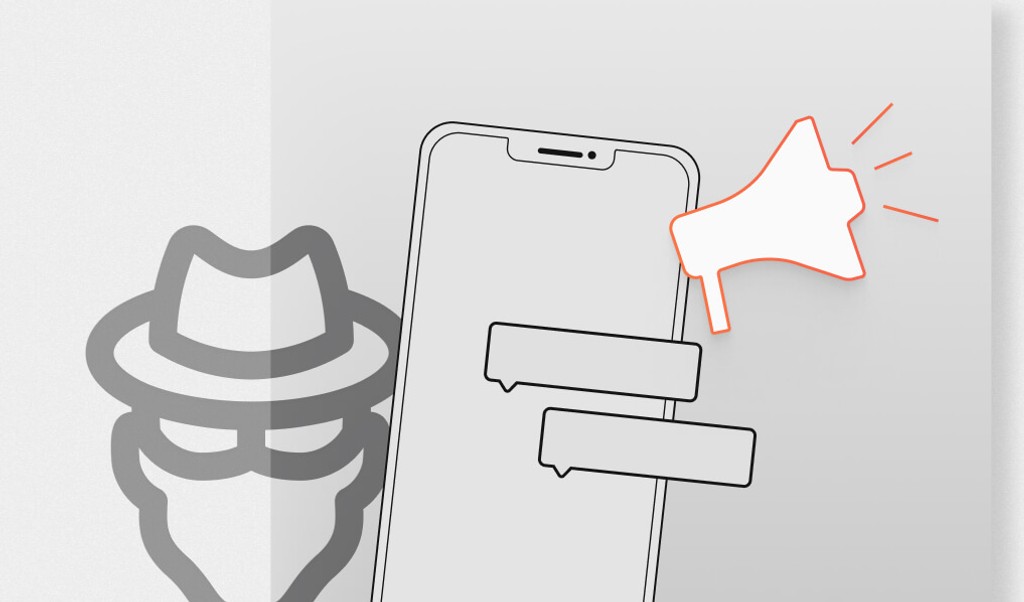
Summarize this article with
Online auction fraud is a risk for buyers and sellers, and it's one of the easiest scams to set up. Most people know they can buy anything on sites like eBay and Webstore, but they may not be aware of the signs of a scam auction. Scammers take advantage of this lack of knowledge, making online auction fraud a common avenue for criminals.
Online auction fraud is so prevalent that governments have a list of common warning signs, but millions of people are still at risk. Site owners must also take precautions to protect buyers and sellers, but detecting fake auctions is a team effort that requires everyone involved to be vigilant.
What is online auction fraud?
Online auction fraud is a type of online fraud where scammers attempt to steal money and goods from unsuspecting victims by creating fake accounts on online auction websites and bidding on items they never intend to pay for. Scammers often use stolen credit cards or fraudulent payment methods to “win” auctions, leaving the seller with no recourse when the items are not delivered or paid for.
Victims of this type of fraud may also be targeted through phishing scams, where they are asked to send payment before delivery or provide confidential information like bank account numbers.
Product authenticity is another common related auction scam, meaning an item is created to look like an expensive brand item. For example, fraudulent sellers often make auctions promising delivery of the latest Nike sneaker, but the image does not represent a legitimate Nike shoe. It isn't until a buyer receives the item that they realize the product is fraudulent.
Buyers can also be scammers. A seller might have expensive items for sale that can be resold on dark markets. The seller will ship an item after payment, but the payment is later reversed using the online auction's refund system. If the card used to pay for products is stolen, the card owner files a chargeback, the seller loses the item, and the payment is reversed. Credit card chargebacks are expensive risks for online auction sellers.
Generally, online auction fraud falls under one of the following categories:
- Misrepresentation of merchandise - The item shown in an auction is not what is delivered to the buyer.
- Hidden charges - Buyers purchase items, and sellers scam them to pay more or charge unnecessary fees.
- Fake bidding - To increase pricing, sellers create additional accounts to increase the current bid amount, often called bid shilling.
- Credit card fraud - Stolen credit cards are used to purchase items, which results in a chargeback on the card and a seller's loss of payment.
- Triangulation - Seller uses a stolen credit card to buy their product and delivers it to the credit card owner's address.
- Black market goods - Similar to merchandise misrepresentation, a buyer might unknowingly purchase fraudulent products sold on black markets.
- Account takeover - Buyers and sellers with hacked accounts can use legitimate information to steal products or create fake auctions.
7 tips for buyers and sellers to avoid auction fraud
Buying and selling items online can be a great way to get a good deal, but it can also be a risk. Auction fraud is a growing problem, and buyers and sellers need to be aware of the potential pitfalls. Statistics show that people who buy fraudulent merchandise are often unaware that they've become victims.
Here are seven tips to help you avoid auction fraud:
1 - Caution when working with new users
One common risk is working with new sellers or buyers. Not every new seller or buyer is a scammer, but many scammers use new accounts to avoid being tracked. Online auction sites have systems to detect fraudulent actions, but sophisticated scammers can bypass security systems undetected. This leaves the responsibility on you to detect fraudulent auctions, which requires little due diligence.
2 - Research the seller and buyer
Check the seller's feedback and ratings before you bid. If the seller has a history of negative reviews, it's best to look elsewhere. It's best to work with small cheaper items with new sellers than make large, expensive purchases. For sellers, do the same with buyer profiles. Look at their feedback and review their previous purchases.
3 - Be wary too-good-to-be-true deals
Sellers looking for targets often put up deals too good to be true. If an item is priced far below its market value, it's likely a scam.
For example, a seller might advertise products normally worth thousands of dollars for only a few hundred dollars. It might take time for the buyer to realize that the merchandise is fraudulent, but by then, the seller already cashes out. The psychology of a scam is to build on a target's greed to convince them to send money on a deal that they can't get anywhere else, so take a minute to question if a deal seems too good to be true.
4 - Watch for payment scams
Be sure to use a secure payment method, such as PayPal or a credit card. Fraudulent sellers know that credit card payments can be reversed, so they often try to convince targets to send money using irreversible methods. Wire transfers, money orders, or Western Union payments can't be reversed, so beware of sellers asking for these payments.
Another common scam to watch out for is a seller contacting you to sell you merchandise after you lose the auction. To maximize their efforts, scammers will contact everyone involved in bidding to offer them fraudulent merchandise at a discounted price. The seller will convince target buyers to send money via wire transfer or Western Union, promising them merchandise shipments. Their story will be that the original buyer disappeared, and they are now offering the merchandise to the second-highest bidder.
5 - Ask questions and keep document records
Before purchasing anything on an online auction, never be afraid to ask questions. A legitimate seller will be happy to answer any questions, and you can use these tips to identify if the seller is suspicious. Most online auction sites limit contact and block ways to contact sellers off the platform, so be wary of any seller or buyer who persuades you to communicate with them off-platform.
Once a purchase is made, a buyer and seller should keep records of the purchase until the order is complete: the buyer has received the intended item. Documentation includes emails, payment receipts, and shipping information.
6 - Read the terms and conditions
Make sure you understand the terms and conditions of the sale, including the return policy. Buyers and sellers can also take proactive steps to protect themselves from fraud. Don't forget to check the shipping and return policies, which can hide hidden fees and terms that could extend delivery times. If the shipping cost is too high, it may be a sign of fraud. Users looking to bypass these rules should also be treated with caution.
7 - Review the item description
For buyers, always read the item description carefully. Images can be deceiving, so don't be afraid to ask questions if the deal seems too good to be true. Sellers might hide details in fine print to trick buyers into buying merchandise and then point to the fine print when a buyer doesn't receive the expected product.
Fraud prevention for auction site owners
Any suspicious seller or buyer activity should be reported to site administrators, but site administrators must also be able to identify potential fraud. The quicker fraud is eliminated, the better a site can protect its user base.
Including technology that detects all site visitors can help site owners and administrators proactively detect fraud. Browser fingerprinting uses advanced technology that assigns an identifier to a user. If the user is labeled a risk in the application, developers can identify any additional accounts and automatically blocklist them from the application. Developers can immediately shadowban the user, alert trust and safety teams for further review, or put the account on hold until it's verified.
Fingerprinting also offers an easy and secure solution for online auction sites to ensure that each user is securely connected to one and only one account. This prevents users from creating multiple accounts and attempting fraud, assuring that all participating customers are on a level playing field.
Conclusion
Auction site owners, buyers, and sellers should always stay observant to avoid fraud. If you encounter any auctions that seem suspicious or untrustworthy, it's important to report them right away. This not only helps protect others from falling victim to deceit, but it also helps to create a safer online auction environment for everyone. Taking the initiative to report any suspicious activity is an important step toward preventing fraud in online auctions, and it can help create an environment of trust and reliability.
FAQ
There are several tell-tale signs of a fraudulent online auction that buyers should be aware of. For instance, if the seller is overly pushy about quick payment or insists on a specific, untraceable payment method, it could be a red flag. Additionally, if the price seems too good to be true, it often is. High-value items being sold at significantly lower prices may indicate a scam.
Verifying the authenticity of a product listed on an online auction site can be a bit challenging, but there are several strategies you can employ. First, carefully examine the product description and images. Look for any inconsistencies or signs that the item may not be genuine. If possible, ask the seller for additional photos or information to confirm the item's authenticity. Checking the seller's feedback and ratings can also provide valuable insights into their credibility. Lastly, consider using an authentication service, especially for high-value items like designer goods or collectibles.
If you suspect that you've become a victim of online auction fraud, the first step is to contact the auction site to report the issue and see if they can assist in resolving the dispute. In many cases, these platforms have policies in place to protect buyers from fraudulent transactions. It's also crucial to contact your bank or credit card company to dispute the charge and prevent any further financial loss. Finally, reporting the incident to your local law enforcement agency and filing a complaint with the Internet Crime Complaint Center can help authorities track down and prosecute these fraudsters.



